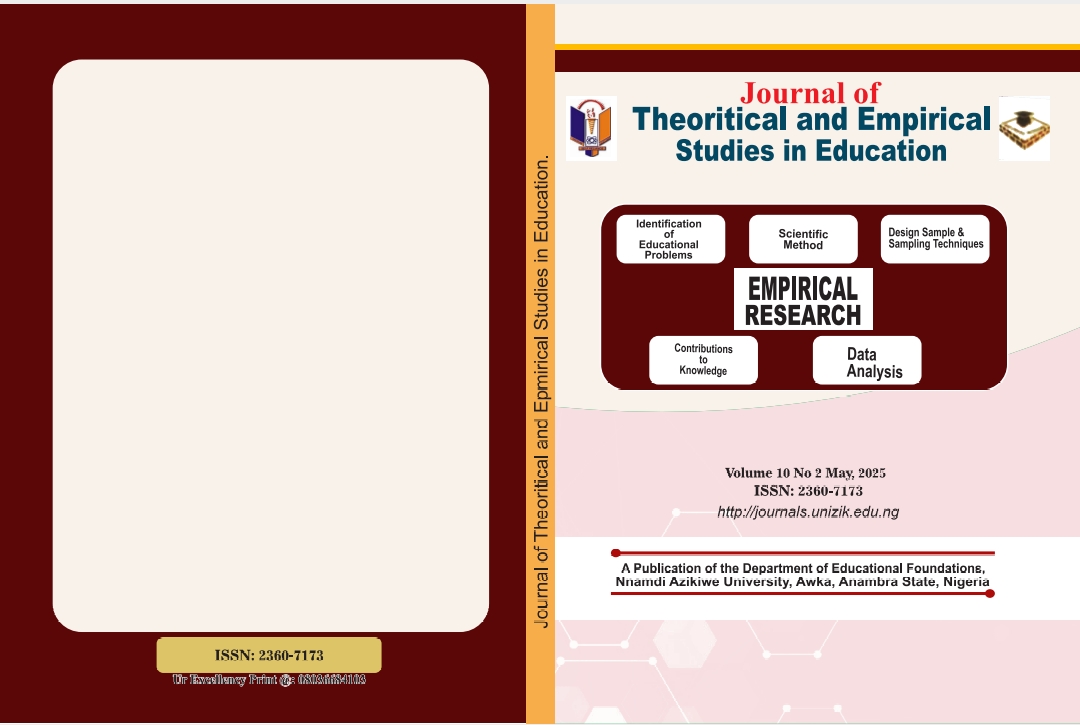Intersectionality and Political Participation: How Gender, Ethnicity, and Disability Shape Voter Behavior in Nigeria.
Keywords:
Intersectionality, Political Participation, Gender, Ethnicity, Voter Behaviour.Abstract
Political participation is a cornerstone of democracy; however, social identities
such as gender, ethnicity, and disability intersect to shape individuals’
experiences in electoral processes. This study investigates how these intersecting
identities influence voter behavior within Nigeria’s electoral system, a nation
characterized by ethnic diversity, gender disparities, and challenges in disability
inclusion. The research examines how gender, ethnicity, and disability interact to
affect voter turnout, political preferences, and electoral participation. Employing
a quantitative approach, the study integrates survey data collected independently
and analyzed before merging findings, ensuring that statistical trends and
personal experiences provide a comprehensive perspective. The study population
comprises women, particularly from marginalized ethnic backgrounds; ethnic
minorities from smaller, historically underrepresented groups; and persons with
disabilities (PWDs) facing accessibility barriers in elections. A sample of 300
registered voters (50 per each of Nigeria’s six geopolitical zones) was randomly
selected from JONAPWD records using purposive sampling to ensure diverse
representation across gender, ethnicity, and disability categories. Data were
gathered through structured questionnaires administered via online Google Forms
and paper-based surveys for respondents with limited digital access, capturing
voter turnout, political preferences, and barriers to participation. Descriptive
statistics were used to identify patterns in voter behavior, while inferential
statistics, specifically logistic regression, tested the relationships between gender,
ethnicity, disability, and voter participation, with analyses conducted using SPSS.
Findings reveal that intersectionality significantly shapes political engagement,
with women from ethnic minority groups and PWDs facing compounded
obstacles such as discrimination, socio-economic constraints, inadequate
electoral accommodations, logistical mobility challenges, and poor security
arrangements. Cultural norms and institutional barriers further disenfranchise
these groups, resulting in lower voter turnout and limited political influence. The
study concludes that fostering an inclusive democracy in Nigeria necessitates
targeted electoral reforms, enhanced accessibility for PWDs, and policies
addressing the unique challenges of marginalized groups.




